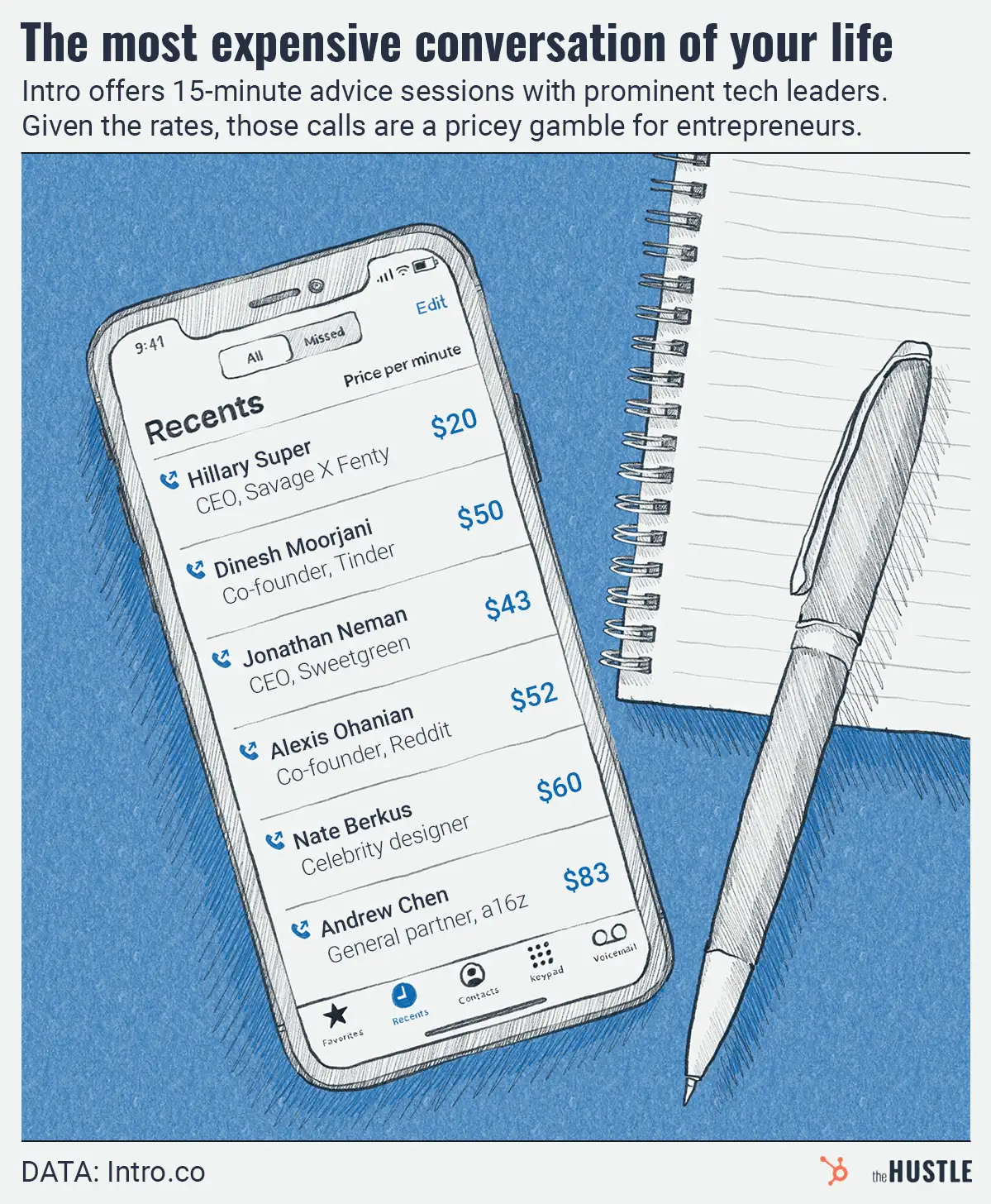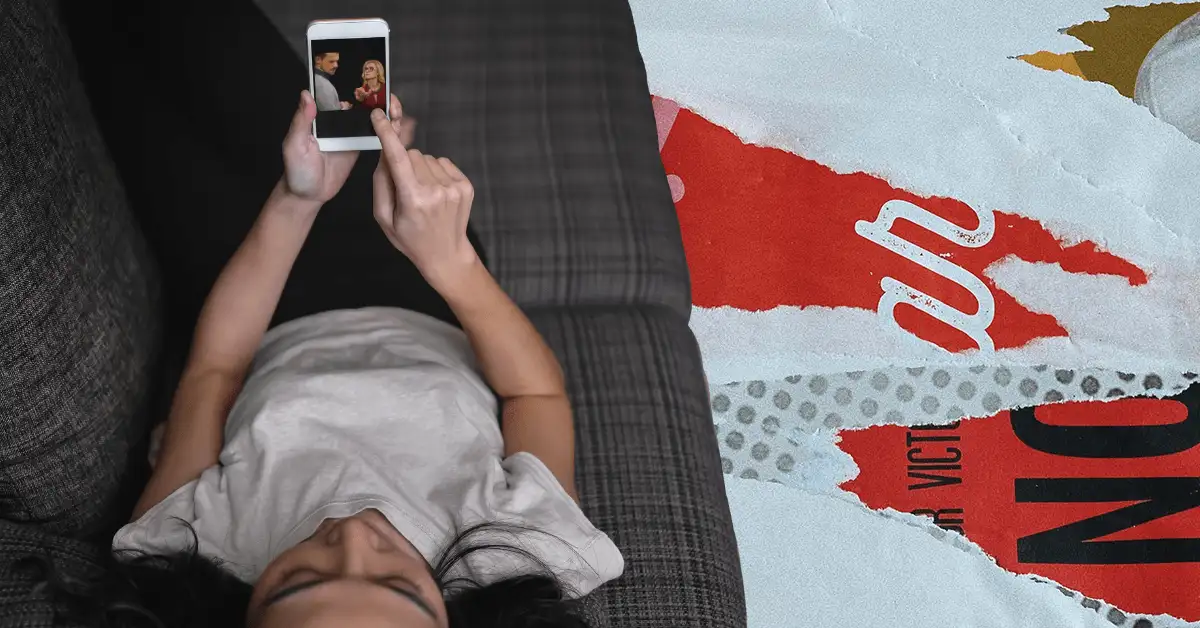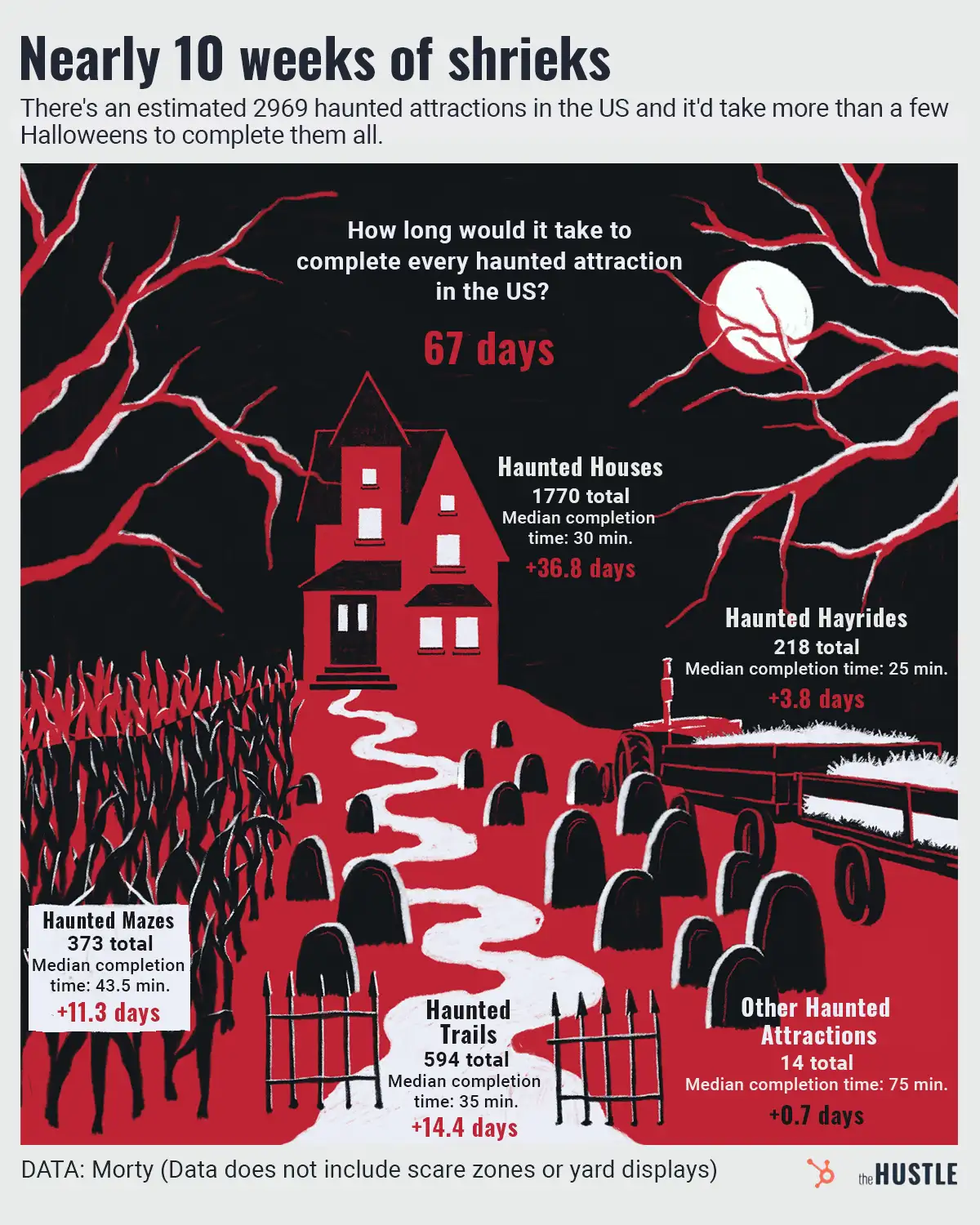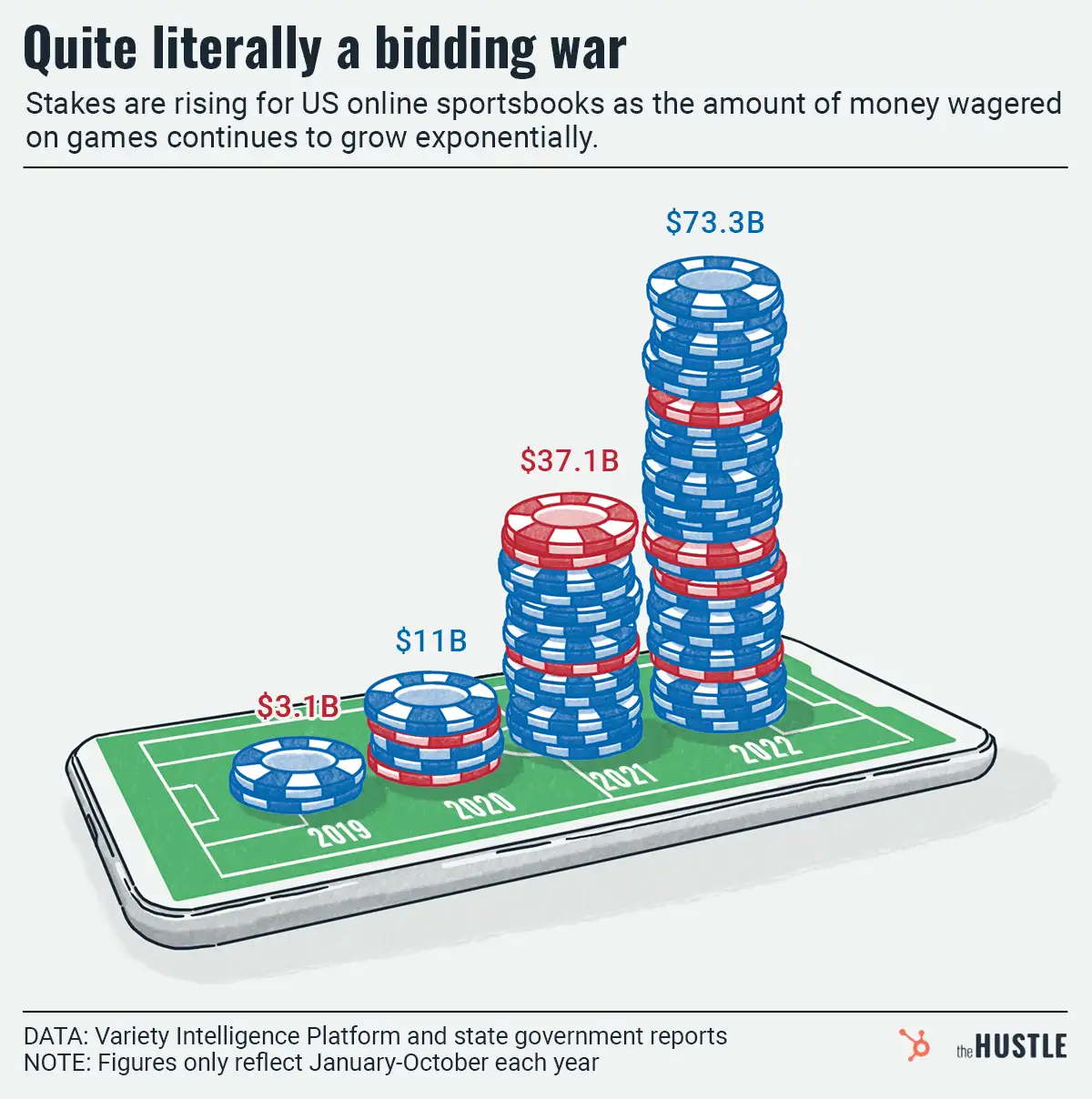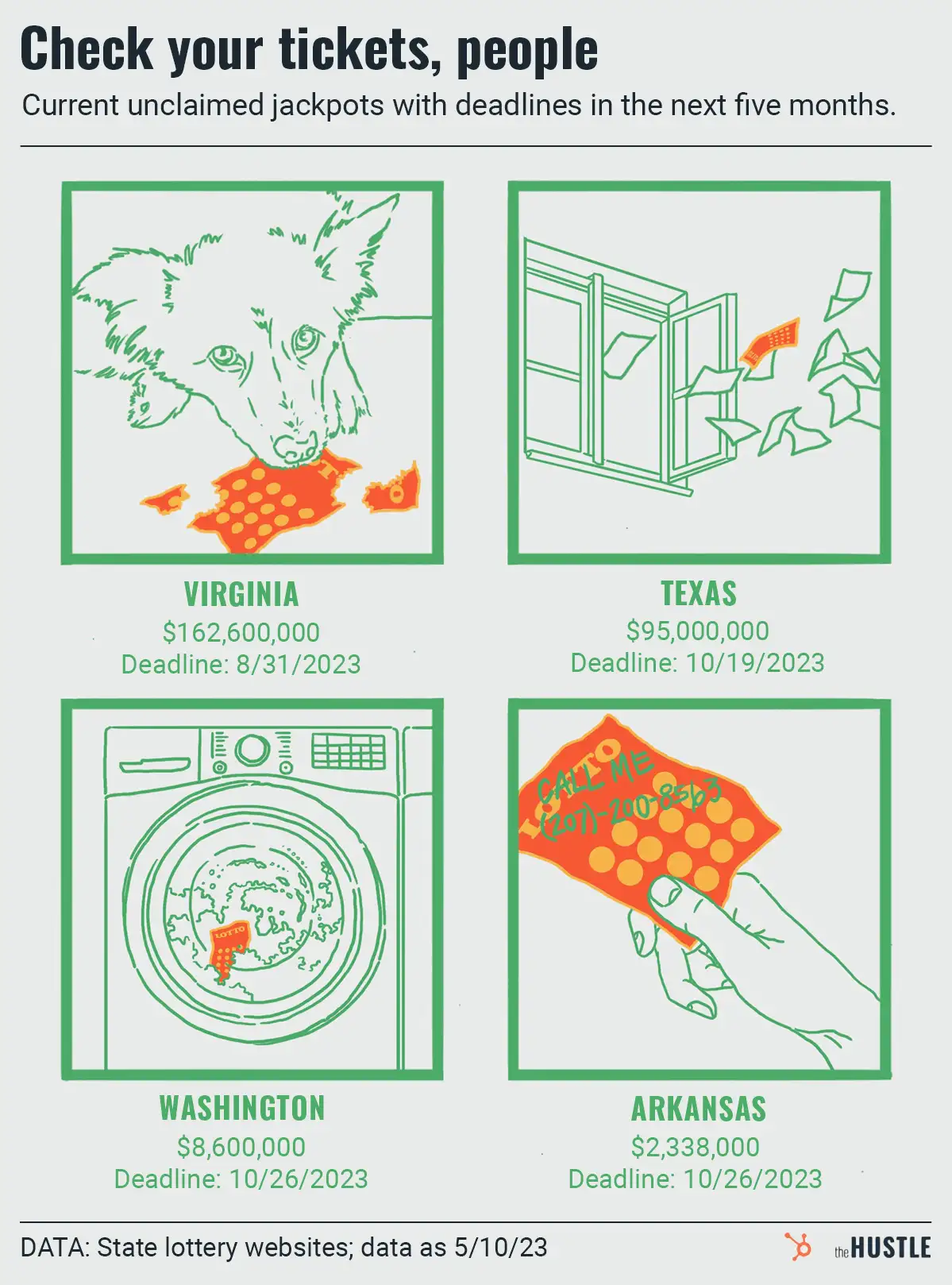Want to see a really big number?

Here: Americans wagered $106B+ on sports between January and November 2023.
That was made possible by a 2018 Supreme Court ruling that ended a federal ban on sports betting. Today, it’s legal in 38 states.
In most of those states, the minimum age to bet is 21; in the rest, it’s 18. But now, more underage Americans are making wagers through unregulated apps.
There are no restrictions to download apps, making it hard for states to control, per The Washington Post. And sports betting apps are gaining steam:
- PrizePicks is Apple’s most downloaded free sports app.
- Underdog Fantasy ranks No. 5 in Apple’s App store.
- Sports betting app Fliff saw 101% YoY growth with 1.4m downloads in 2023. It has 100k+ downloads in the Google Play store and is No. 12 in Apple’s App Store sports app rankings.
In total, eight of the top 10 App Store sports apps are centered around gambling.
A bad bet
While apps like Fliff use “virtual currency,” not real money, they do allow for in-app purchases and wagers where underage users can swipe very real credit cards.
Some states, though, have pushed back.
Big Fish Games agreed to pay users $155m after a federal court ruled it violated Washington state law, Maine fined Underdog Fantasy $392k for unlicensed sports betting, and Michigan hit PredictionStrike with a cease-and-desist order.
But even with fake coins…
… experts warn that there’s real damage. Social casino games prime underage users, who are more susceptible to addiction, for gambling.
The issue is no accident: TV ad spend for betting sites hit $305m between January and November 2023, up from $197m total in 2021.
And one out of 10 college students is a pathological gambler, compared to 2%-5% of the general population.
Plus, casino-style betting for purchases within video games is yet another opportunity for young people to get hooked.
bc75.jpg)
